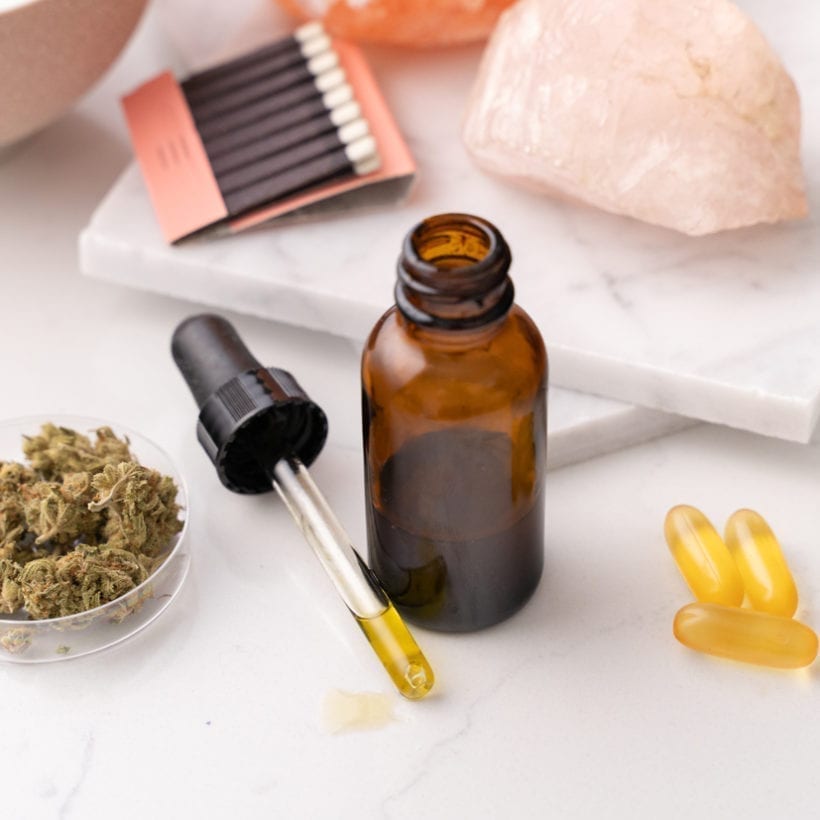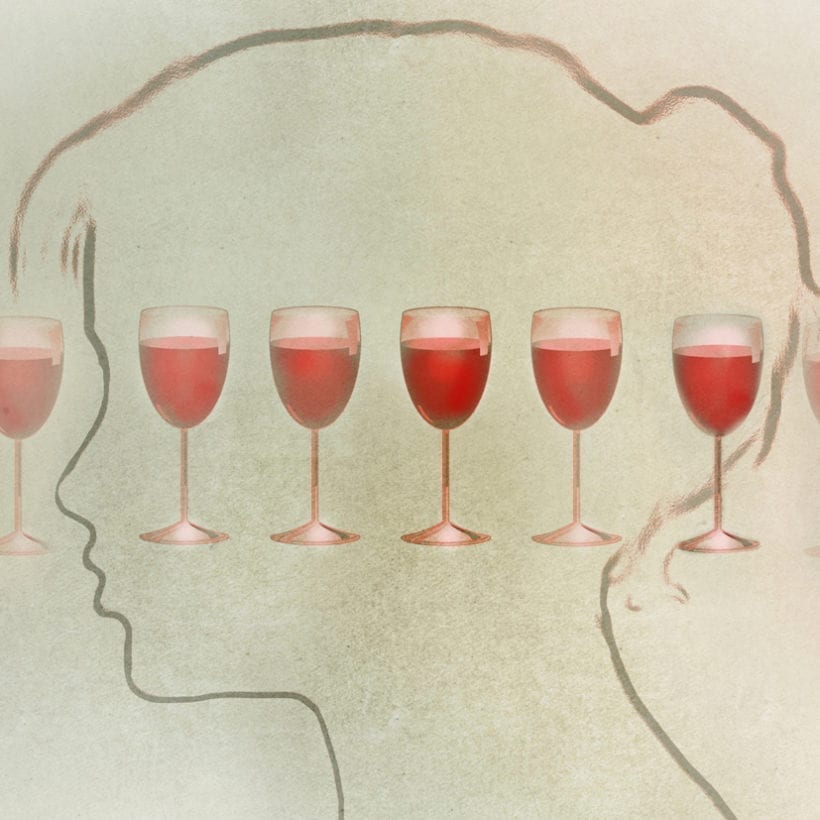Every afternoon at about 4 o’clock, “brain fog” descends on me. I lose focus. I will walk into a room and forget why I am there. And I am way less productive. Sometimes, all I can manage is a lethargic scroll through Unlikely Animal Friends on Instagram — when usually I still have a ton of work to do.
Enter nootropics: the brain-enhancing supplements that are suddenly everywhere in the wellness world. Claiming to turbo-charge cognitive functions such as creativity, focus, memory, motivation and decision-making, they are the ultimate fix for people who are overworked and underslept — which is to say, pretty much all of us.
“Nootropics,” a term coined in the ’70s, derives from the Greek words “mind” and “bend,” work — the thinking goes — by protecting neurons from damage brought on by toxins, aging and stress.
And it is a huge business. The brain supplement industry is expanding madly around the globe — by 2024, it is projected to be an 11.6 billion dollar market. It is pretty easy to see its appeal: Who doesn’t want to optimize their brain power for peak mental performance?
The nootropics trend kicked off in earnest in 2015, when Silicon Valley types started pouring millions into — and becoming obsessed with — brain supplements to help them achieve mental clarity in order to power through their workday.
Four years later, the market is bursting with pills and powders and potions claiming to make you smarter. The Genius Brand sells Genius Consiousness Super Nootropic Awakening Formula that promises to “clear the cobwebs holding you back from achieving limitless status.” Bulletproof’s Unfair Advantage touts a hero ingredient called Brain Octane oil. HVMN (pronounced “human”) offers supplements such as memory-enhancing RISE, beloved by hard-charging tech types. A company called Cured even offers a CBD nootropic that claims to “sustain focus.”
Most of these neurohacking supplements currently flying off the shelves are a blend of vitamins, antioxidants, phytochemicals, fatty acids such as Omega-3s, and amino acids such as L-theanine, a compound commonly found in green tea. They may also contain foods like red reishi mushrooms, adaptogens such as ginseng, and even common spices like turmeric.
After some research, I order Moon Juice’s wildly popular Brain Dust, which claims to “support mental stamina, alertness and concentration.” It is a blend of adaptogens such as lion’s mane (a kind of mushroom), ginkgo and Rhodiola, a mountainous herb known as the golden root. The first day, I dumped it into my tea, but couldn’t finish it because I was put off by its earthy taste and murky texture. I fared better when I mixed it into a tastier Brain Dust Latte, with coffee, almond milk and coconut nectar.
After a few weeks, I did feel noticeably more alert in the afternoons — but maybe it was the coffee. Which brings me to the next question: What is the research behind these brain boosters?
The Global Council on Brain Health concluded that after reviewing the evidence, they couldn’t endorse the use of a single brain-enhancing supplement.
Not much, as it turns out. A major new study from the Global Council on Brain Health, a group of leading neurologists, nutritionists and scholars concluded that after reviewing the evidence, they couldn’t endorse the use of a single brain-enhancing supplement. (The only exception was the B vitamin folate, which has been shown to improve cognitive function, but only in the small part of the population that is deficient).
And most of this stuff is unregulated. Unlike medicines that require prescriptions, over the counter supplements have no FDA oversight, says neuroscientist Kimberly R. Urban, Ph.D., a research scientist at the Children’s Hospital of Philadelphia who has studied nootropics.
Not only that, she says, “but these companies can have huge discrepancies in the actual concentration of ingredients, sometimes being off by 40 percent or more,” she says. “So there’s no guarantee that each tablet is going to contain the same amount of ingredients as listed on the bottle.” And even the amounts listed, she says, are often far lower than the amounts used in studies (often animal studies).
Urban adds that in most over-the-counter herbal and vitamin supplements, “there doesn’t seem to be any ingredients that strike me as likely to harm,” she says. The only two she can think of, she says, are that “some people are sensitive to caffeine and might have symptoms of rapid heart rate or dizziness if they’re taking nootropics and drinking caffeinated beverages on top of that. And Ginkgo biloba can alter blood sugar levels and is known to interfere with insulin management in people with diabetes, so diabetics should be wary of any supplement that contains ginkgo.”
And some supplemental research shows promise. A 2017 study found that people with high levels of omega-3s had increased blood flow in the brain, while a 2014 study published in the journal Nutrients found that vitamin E supplements may boost cognitive function.
But as Urban says, “Unfortunately, there is no easy, quick solution when it comes to changing our bodies or our brains.” And as everyone’s brain chemistry is unique, what works for one person may not for another. “It’s highly unlikely that there is any way to boost our capabilities beyond the brain’s natural, set optimal level, which is going to be different for different people,” she says.
If taking brain-boosting supplements makes you feel sharper and smarter, great (although let your doctor know you are doing it, and don’t take more than is recommended). But Urban says a better idea is to take a look at the underlying causes of your fuzzy brain. Are you spending your days crazily multitasking? It can make the brain fuzzier and less productive, finds a Stanford study.
The best way to be mentally sharp, Urban says, is by doing all the things you were probably hoping to evade by popping a supplement, like getting enough sleep.

A boatload of studies shows that lack of sleep can wreak havoc on critical thinking and memory. Just one night of sleep deprivation affects cognitive function and makes us fuzzier.
Rather than popping a pill, says Emily Fonnesbeck, R.D., a nutrition therapist in St. George, Utah, nothing will ever beat nutrition from whole foods. “While there’s very limited research supporting supplements for cognitive function, we have a wealth of data to support certain food patterns for brain health — with no adverse risks attached! You’d be better off using your resources to add things like leafy greens, nuts, berries, whole grains and omega-rich foods like oily fish, walnuts and flaxseed to your meals and snacks.”
And if you want a quick fix to boost productivity and be mentally sharp, it might be better just to grab a latte: caffeine is one of the few nootropics that is scientifically proven to work, says Urban. “Caffeine is a central nervous system stimulant,” she says, “so it will produce a boost in energy, focus and attention, and will make you feel more productive.” (The Mayo Clinic recommends a maximum of 400 milligrams of caffeine a day, the equivalent of four cups of coffee).
And exercise is one of the best possible things you can do to turbo-charge your brain, particularly aerobic activities that send more oxygen-rich blood to the brain such as running, cycling, swimming or hitting the elliptical at the gym.
I still use my Brain Dust, but I have found the best regimen to clear my brain fog isn’t in a pill: it is going for a long run, and then following actress Jenny Mollen’s lead and trying to sleep for nine hours at night. It is not a drug, but it is still pretty smart.
We only recommend products we have independently researched, tested, and loved. If you purchase a product found through our links, Sunday Edit may earn an affiliate commission.







